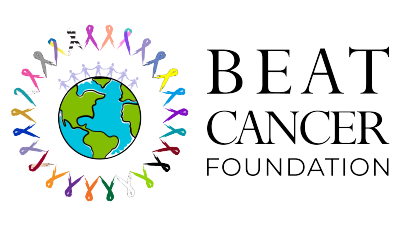
Acetyl-L-Carnitine

The Power of Acetyl L Carnitine in Cancer Treatment and Recovery
Acetyl-L-carnitine (ALC), an endogenous compound derived from the amino acid L-carnitine, presents promising potential for cancer patients during and post-chemotherapy. Known for its role in energy production and previously recognized for its potential benefits for dementia patients and those battling fatigue, ALC also shows promise in mitigating complications often associated with cancer treatment, such as neuropathy, cognitive fog, and healthy cell damage.
ALC is a derivative of carnitine, a crucial antioxidant prevalent in nearly every cell of our bodies. Carnitine is instrumental in transporting fats to mitochondria—the cell's powerhouse—while also helping to eliminate waste products. Muscular tissues exhibit high concentrations of carnitine, which is primarily synthesized by the liver and kidneys from the amino acids’ lysine and methionine. Carnitine's fat-transporting properties make it a popular supplement for weight loss, while its primary dietary sources include animal-derived products like chicken, beef, and dairy.
Scientific investigations into carnitine have unveiled its vascular benefits. It can potentially alleviate symptoms associated with angina and arrhythmias and foster blood vessel functionality, particularly in cases linked to congenital heart failure. When poor vascular health leads to claudication, studies suggest carnitine can decelerate this decline, allowing those with peripheral arterial disease to walk more comfortably with less pain. Some research even suggests that carnitine can enhance the effectiveness of medications like Viagra and even gently elevate testosterone levels.
When looking specifically at cancer patients, Acetyl-L-Carnitine shines in several areas:
- Neuropathy Reduction: For chemotherapy patients, ALC may minimize neuropathy risk and possibly even aid in damage repair12. Because ALC is structurally similar to the neurotransmitter acetylcholine, it has been used in treating diabetic neuropathy. Interestingly, research showed that diabetics with neuropathy had low carnitine levels1. ALC was also beneficial in non-diabetic neuropathy1. ALC could even stimulate nerve regeneration and reduce neuropathy damage3.
- Energy Boost: Many cancer patients experience fatigue during or after chemotherapy—a symptom linked to low carnitine levels. In one study, ALC supplementation improved albumin, lymphocyte, and energy levels in people undergoing chemotherapy4. Italian scientists found in 2002 that a Levocarnitine drink improved energy levels in 90% of patients on chemotherapy after only one week5. Another study on children showed that their carnitine levels significantly declined over three months of chemotherapy.
- Cognitive Health: ALC has demonstrated potential in reducing "chemo brain" or cognitive fog post-chemotherapy. It also appears to slow mental decline in diseases like Alzheimer's and dementia. Some studies suggest ALC reduces amyloid plaque accumulation in the brain, a known factor in neurodegenerative disorders.
- Male Fertility Protection: Studies suggest that carnitine can shield male fertility from damage caused by drugs like cyclophosphamide by protecting the testes' Sertoli cells6.
- Improved Nutritional Status and Quality of Life: Supplementation with L-Carnitine has been shown to improve nutritional status and quality of life in patients with pancreatic cancer. Even in breast cancer patients, a combination of carnitine and CoQ10 resulted in reduced fatigue and cytokine levels7.
While this is promising, further research is necessary to conclusively establish the role of Acetyl-L-Carnitine in cancer treatment and recovery. However, with the evidence we currently have, it is clear that ALC is poised to make a significant impact in oncology.
References:
- https://pubmed.ncbi.nlm.nih.gov/10975724/
- https://www.canceractive.com/article/acetyl-l-carnitine-may-help-prevent-chemo-side-effect-of-peripheral-nerve-loss-but-the-proof-is-still-lacking
- https://pubmed.ncbi.nlm.nih.gov/17714181/
- https://www.ncbi.nlm.nih.gov/pmc/articles/PMC5795559/
- https://www.ncbi.nlm.nih.gov/pmc/articles/PMC2375434/
- https://pubmed.ncbi.nlm.nih.gov/27649639/
- https://www.mskcc.org/cancer-care/integrative-medicine/herbs/carnitine
“Knowing all your treatment options could be life-saving!”
Location
Sheridan, WyomingTogether, we can beat cancer
Thank you for your interest in the Beat Cancer Foundation. We are here to support you every step of the way in your cancer treatment journey. Please fill out the form below, and our team will be in touch with you shortly. Together, we can beat cancer. (307) 291-0991

